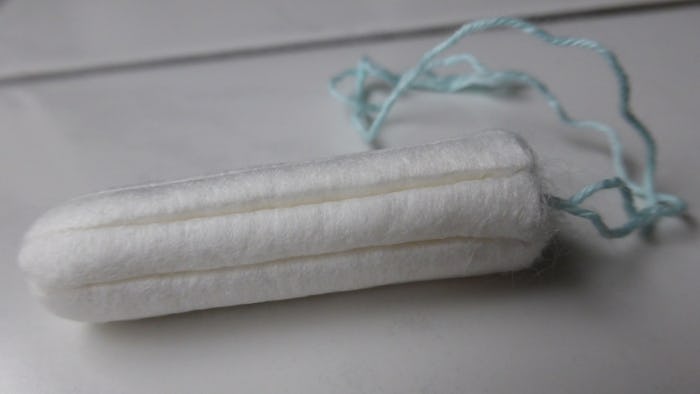Life

9 Things That Happen After Your Period Ends
As many women know, your body goes a little bit haywire when you get your period. From mood swings, to aches and pains, to insufficient sleep, to acne and all the other lovely period-related side effects, that particular time of the month can be a bit challenging. Most women know their period pretty well, but what about right after it ends? The second week of your cycle yields a whole host of things you never realized happen to your body right after your period ends.
It can be easy to think of your menstrual cycle as just the time you actually have your period, but it's a ongoing thing. Typically, the week of your period is the beginning of your menstrual cycle. According to the Office on Women's Health, the average menstrual cycle lasts 28 days, but can range from 21 to 45 days, depending on a woman's age. This means the week after your period ends is the second week of the cycle, which is when your body is gearing up for ovulation. This also means your body goes through some additional, perhaps more subtle, changes. Not sure what to expect? Here are some things you never realized happen to your body the moment you toss out the last tampon (or pad, or menstrual cup. Whatever you prefer.)
1Your Short-Term Memory Improves
Right after your period ends, your estrogen level begins to rise and peak right before you begin ovulation. Dr. Louann Brizendine, a neurobiologist at the University of California, San Francisco and the author of The Female Brain, told Shape that your rising estrogen level sharpens short-term memory function and boosts the growth of brain cells, meaning you won't be as flaky and forgetful as at other times in your cycle.
The Female Brain, $14, Amazon
2Your Hair Gets Greasy
While your hair gets more oily early in your cycle your hair might look greasier than usual for several days, according to an article from Women's Health. This means that it's perfectly possible for you to begin that week after with the remnants of increased oil production. If you already normally have a more oily scalp, this might not be great news, but for those with a drier scalp, it's a welcome side effect.
3You're More Energetic
This effect may be something you've noticed before, but you might have chalked it up to the comparative fatigue you felt while on your period. According to the aforementioned article from Shape, however, your energy levels really do increase right after your period due to rising estrogen and testosterone levels.
4Your Sex Drive Spikes
You've surely noticed this before. According to the BabyMed website, as women edge closer to ovulation, their sex drives increase as a survival instinct. During the week or so right after your period, your body is moving closer and closer to ovulation again, which explains the boost in libido.
5You're More Emotionally Intelligent
Women are known for their ability to read other people's emotions, though some might be more attuned to this than others. However, you might be better at intuitively knowing how other people are feeling right after your period ends as well as better at reading facial cues, according to Woman's Day. It's like a superpower.
6Your Sense Of Smell Is Better
According to the previously mentioned article from Shape, your sense of smell might improve immediately following the end of your period, as well. Again, you have your higher estrogen levels to thank for that.
7You're More Athletically Inclined
Are you an aspiring athlete? You might be more successful in your athletic endeavors right after your period ends, according to that same article from Woman's Day. The theory is that your estrogen helps your muscles absorb glucose, which fuels your body better, allowing you to rock out a race or just kill it in your weekly workout class.
8You Might Be More Anxious
According to Marie Claire, those rising estrogen levels can also potentially trigger anxiety attacks. If you're prone to panic or anxiety attacks, keep an eye on yourself, be kind, and take it easy.
9You Don't Feel As Much Pain
During these few days immediately following the cessation of your period, you'll likely experience pain in a different way. According to the aforementioned article from Marie Claire, higher levels of estrogen cause endorphins (which temper pain) to be more active. So the good news is, if you hurt yourself trying to imitate an Olympic athlete, at least it won't be as painful as usual.